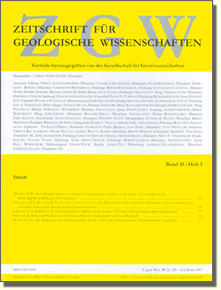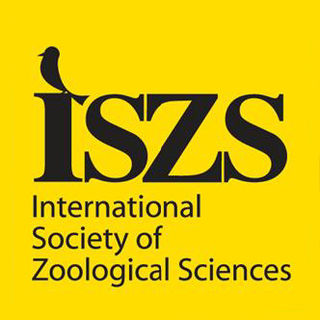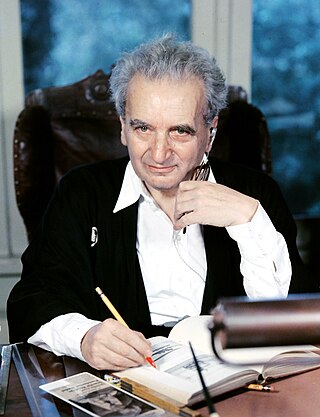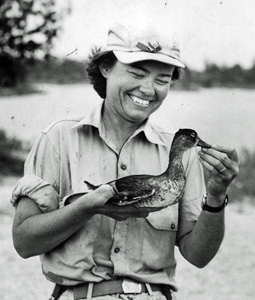Related Research Articles

A Gaussian year is defined as 365.2568983 days. It was adopted by Carl Friedrich Gauss as the length of the sidereal year in his studies of the dynamics of the solar system. A slightly different value is now accepted as the length of the sidereal year, and the value accepted by Gauss is given a special name.
The International Union of Prehistoric and Protohistoric Sciences is a learned society, linked through the International Council for Philosophy and Humanistic Studies to UNESCO, and concerned with the study of prehistory and protohistory. In the words of its constitution:

The International Council for Game and Wildlife Conservation (CIC) (French: Conseil International de la Chasse et de la Conservation du Gibier, German: Internationaler Rat zur Erhaltung des Wildes und der Jagd) is a politically independent not-for-profit international organisation, aiming to preserve wildlife through the promotion of sustainable use of wildlife resources. The initialism "CIC" comes from the organisation's original French name Conseil International de la Chasse.

The Zionist Congress was established in 1897 by Theodor Herzl as the supreme organ of the Zionist Organization (ZO) and its legislative authority. In 1960 the names were changed to World Zionist Congress and World Zionist Organization (WZO), respectively. The World Zionist Organization elects the officers and decides on the policies of the WZO and the Jewish Agency, including "determining the allocation of funds." The first Zionist Congress was held in Basel, Switzerland in 1897. Any Jew over age 18 who belongs to a Zionist association is eligible to vote, and the number of elected delegates to the Congress is 500. 38% of the delegates are allocated to Israel, 29% to the United States of America, and 33% to the remainder of the countries of the Diaspora. In addition there are about 100 delegates which are appointed by International Organizations affiliated with WZO.

Wildlife management is the management process influencing interactions among and between wildlife, its habitats and people to achieve predefined impacts. Wildlife management can include wildlife conservation, population control, gamekeeping, wildlife contraceptive and pest control.

The International Association of Wagner Societies is an affiliation of Wagner societies that promotes interest and research into the works of Richard Wagner, raises funds for scholarships for young music students, singers, and instrumentalists, and supports the annual Bayreuth Festival. It also sponsors symposia, holds singing competitions for Wagnerian voices, and issues awards for stage direction and stagings of Wagner's operas. The association is a nonprofit organization, governed by a Presidium headed by a President, who are elected together quinquennially.
The International Anarchist Congress of Amsterdam took place from 24 August to 31 August 1907. It gathered delegates from 14 countries, among which important figures of the anarchist movement, including Errico Malatesta, Luigi Fabbri, Benoît Broutchoux, Pierre Monatte, Amédée Dunois, Emma Goldman, Rudolf Rocker, Christiaan Cornelissen, et al.
The International Electrical Congress was a series of international meetings, from 1881 to 1904, in the then new field of applied electricity. The first meeting was initiated by the French government, including official national representatives, leading scientists, and others. Subsequent meetings also included official representatives, leading scientists, and others. Primary aims were to develop reliable standards, both in relation to electrical units and electrical apparatus.

The Zeitschrift für Geologische Wissenschaften is a peer-reviewed German scientific journal established in 1973, that publishes preferably original papers in German and English dealing with geology and related sub-disciplines. Since 2005 the journal has been published bimonthly by the Verlag für Geowissenschaften Berlin. The journal was formerly an official periodical of the national East German Gesellschaft für Geologische Wissenschaften, the East German geological sciences society, and was published by the scientific and academic publishing house Akademie Verlag. The journal was regarded as the most important geological sciences periodical in East Germany with an international reputation. The journal is indexed in: GeoRef, Chemical Abstracts Service, and Geoline.
The International Union for the Study of Social Insects has at its purpose to promote and encourage the study of social insects and other social organisms in the broadest sense. Both research and the dissemination of knowledge about social insects and other social organisms through publications, educational programs, and activities are encouraged. The Union further pursues these objectives via the organization of Congresses and Symposia, publication of the journal Insectes Sociaux, and recognition of distinguished service with awards. National and regional sections play a key role in the IUSSI, with the sections organizing meetings, symposia, and newsletters.

The International Society of Zoological Sciences (ISZS) was founded to encourage research, education, and communication in zoology. The society includes both individual scholars, and professional organizations. It particularly tries to increase the availability of research resources and enhance cooperation between different branches of zoology.

The Persian fallow deer is a deer species once native to all of the Middle East, but currently only living in Iran and Israel. It was reintroduced in Israel. It has been listed as endangered on the IUCN Red List since 2008. After a captive breeding program, the population has rebounded from only a handful of deer in the 1960s to over a thousand individuals.

A professional hunter is a person who hunts and/or manages game by profession. Some professional hunters work in the private sector or for government agencies and manage species that are considered overabundant, others are self-employed and make a living by selling hides and meat, while still others guide clients on big-game hunts.
International Union of Speleology is a scientific non-governmental organization dedicated to the international promotion and coordination of cave and karst research. Founded in 1965, UIS is a member of the International Science Council in Paris and cooperates with UNESCO. In 2021–2022, UIS organized the International Year of Caves and Karst.

This is a bibliography of works by Theodore von Kármán.

Elizabeth Brown Losey was an American conservationist who is recognized as being the first female refuge biologist.
The Protocol of Stockholm was an agreement between the International Amateur Handball Federation (IAHF) and Fédération Internationale de Basketball, made in 1934 to transfer the oversight of basketball from the IAHF to the FIBB.
Henryk Okarma is a Polish biologist, professor of life sciences. His main areas of expertise are research on predatory mammals, especially wolf, lynx, wildcat, invasive species and research on hunting biology. He is an academic teacher at the Jagiellonian University, long-time director of the Institute of Wildlife Conservation of the Polish Academy of Sciences and a corresponding member of the Polish Academy of Sciences.
References
- ↑ "International Union of Game Biologists Constitution" (PDF). 17 August 2007. Archived from the original (PDF) on 22 August 2017.
- ↑ http://www.iugb2011.com/social/Bylaws%20IUGB.pdf Archived 2017-08-22 at the Wayback Machine [ bare URL PDF ]
- ↑ Deplanque, Gilles (2003). "Newsletter of the Waterbird Harvest Specialist Group" (PDF).
- ↑ Ueckermann, E. (1991-09-01). "Geschichte des Internationalen Ringes der Jagdwissenschaftler Zum XX. Treffen in Gödöllö, Ungarn, 1991". Zeitschrift für Jagdwissenschaft (in German). 37 (3): 141–147. doi:10.1007/BF02240576. ISSN 0044-2887. S2CID 39550849.
- ↑ Valentinčič, Stane (1994-12-01). "Zeitschrift für Jagdwissenschaft — 40 Jahre der Herausgabe 1954–1994". Zeitschrift für Jagdwissenschaft (in German). 40 (4): 220–222. doi:10.1007/BF02243443. ISSN 0044-2887. S2CID 29567990.
- ↑ "IUGB 37 Norway".
- ↑ "Stowarzyszenie Miłośników Żubrów!". IUGB 2023. Retrieved 2023-08-29.
- ↑ "35th IUGB 2021". 2021-09-19.
- ↑ "One with nature Exhibition". 2021-09-19.
- ↑ "IUGB 2019". Archived from the original on 2019-06-03. Retrieved 2019-06-03.
- ↑ "Congrès 2017 de l'IUGB du 21 au 25 août à Montpellier | Tour du Valat". www.tourduvalat.org (in French). Archived from the original on 2017-08-22. Retrieved 2017-08-22.
- ↑ "IUGB 2017 - Abstract booklet" (PDF).
- ↑ "XXXII Congress of the International Union of Game Biologists". www.facebook.com. Retrieved 2017-08-22.
- ↑ Crombrugghe, Simon A. de; International Union of Game Biologists; Congress, eds. (1985). Transactions of the XVIIth Congress of the International Union of Game Biologists, Brussels (Belgium), September 17-21, 1985. Brussels: Ministry of Agriculture, Agricultural Research Administration. OCLC 612044157.
- ↑ Modelling the impacts of deer management practises on spatial dynamics of ticks (in Ndonga). 2013. hdl:2078.1/140222.
- ↑ "LA FACE AU CŒUR D'UNE REUNION DE PROFESSIONNELS DE LA FAUNE SAUVAGE AU NIVEAU INTERNATIONAL : LE CONGRES DE L'UIBG 2013 A BRUXELLES" (PDF). 2013.
- ↑ Puigcerver, Manel; International Union of Game Biologists; Congress; International Symposium Perdix, eds. (2011). XXXth IUGB Congress (International Union of Game Biologists) and Perdix XIII: Barcelona, Spain, 5th-9th September 2011. S.l.: s.n. OCLC 754070805.
- ↑ Buner, F.; Puigcerver, M. (2012). "XXXth IUGB Congress and Perdix XIII". Animal Biodiversity and Conservation. 35 (2): 153–154. doi: 10.32800/abc.2012.35.0153 .
- ↑ International Union of Game Biologists; Congress; Sjöberg, Kjell; Rooke, Tuulikki, eds. (2007). International Union of Game Biologists XXVIII Congress: August 13-18, 2007 Uppsala, Sweden. Uppsala: Department of Wildlife, Fish and Environmental Studies, Swedish University of Agricultural Sciences. OCLC 231580994.
- ↑ International Union of Game Biologists; Institut für Wildtierforschung; Congress of the International Union of Game Biologists (2005), Extended abstracts XXVIIth Congress of the International Union of Game Biologists, IWFo, OCLC 836150578
- ↑ Hannover, Stiftung Tierärztliche Hochschule. "TiHo Hannover -". www.tiho-hannover.de. Archived from the original on 2017-08-17. Retrieved 2017-08-22.
- ↑ Buner, F. & Puigcerver, M. (2012). "XXXth IUGB Congress and Perdix XIII. Animal Biodiversity and Conserva- tion, 35.2: 153–154" (PDF).
{{cite web}}: CS1 maint: multiple names: authors list (link) - ↑ International Union of Game Biologists; Congress; Χατζηστερκώτης, Ελευθέριος; Perdix IX International Symposium, eds. (2002). Proceedings of the XXVth International Congress of the International Union of Game Biologists and the IXth International Symposium Perdix. Berlin: Blackwell Verlag. OCLC 52664441.
- ↑ Potts, D (2002). "25 Congress IUGB". Zeitschrift für Jagdwissenschaft Zeitschrift für Jagdwissenschaft. 48 (2): 125–126. ISSN 0044-2887. OCLC 4650092679.
- ↑ Proceedings of IUGB XXIV, Thessaloniki, Greece, (eds K. Thomaidis & N. Kypridemos)
- ↑ "Proceedings of the 8th Perdix conference in Sopron".
- ↑ International Union of Game Biologists; Congress, eds. (1997). International Union of Game Biologists 23rd Congress, September 1-6, 1997, Lyon, France, poster abstract booklet: International Conference "Wildlife management and land use in open spaces" = Union internationale des biologists du gibier 23éme Congres, 1-6 Septembre 1997, Lyon, France : Conference Internationale "Gestion de la faune sauvage et usages de l'espace dans les paysages ouverts.". Auffargis: Office national de la chasse. OCLC 49954285.
- ↑ Congress, International Union of Game Biologists (1996). Proceedings of the Congress of the International Union of Game Biologists, XXII Congress: "The Game and the Man" : Sofia, Bulgaria, September 4-8, 1995. Pensoft Publishers. ISBN 9789546420138.
- ↑ Thompson, Ian D; ED; International Union of Game Biologists. Congress (21st : 1993 : Halifax, N.S.); Canadian Forest Service (1993). International Union of Game Biologists XXI congress: forests and wildlife, towards the 21st century : proceedings. Chalk River, ON: Canadian Forest Service. ISBN 978-0-662-22659-8. OCLC 932822689.
{{cite book}}: CS1 maint: numeric names: authors list (link) - ↑ International Union of Game Biologists; Congress; Csányi, Sándor; Ernhaft, József, eds. (1991). Transactions of the XXth Congress of the International Union of Game Biologists: University of Agricultural Sciences, Gödöllö, Hungary, August 21-26, 1991. Gödöllö: Univ. of Agricultural Sciences. OCLC 924399423.
- ↑ International Union of Game Biologists; Congress; Myrberget, Svein (1990). Transactions, the XIXth IUGB Congress: the International Union of Game Biologists, September 1989, Trondheim, Norway. Trondheim: Norwegian Institute for Nature Research.
- ↑ International Union of Game Biologists; Congress; Norwegian institute for nature research (NINA); Directorate for nature management (DN), eds. (1989). The XIXth congress international union of game biologists (IUGB): programme, list of participants. OCLC 938479519.
- ↑ Congress of the International Union of Game Biologists; Bobek, Bogusław (1987). Abstracts of the XVIIIth Congress of the International Union of Game Biologists: Kraków, August 1987. Kraków: Jagiellonian University. OCLC 834907629.
- ↑ Bobek, B; Perzanowski, K; Regelin, W (1992). Global trends in wildlife management: 18th IUGB Congress, Jagiellonian University, Krakow, Poland, August 1987 : transactions vol. 2. Krakow, Poland: Swiat Press. ISBN 978-8385597063. OCLC 223646892.
- ↑ International Union of Game Biologists; Congress; Crombrugghe, S. A. de, eds. (1985). Transactions of the 17th Congress of the International Union of Game Biologists, Brussels (BE), September 17-21, 1985. Brussels: Ministry of Agriculture : for the Organising Committee of the 17th IUGB Congress. OCLC 86047883.
- ↑ International Union of Game Biologists; Congress; Špeník, Michal; Hell, Pavel, eds. (1983). Proceedings from XVI. Congress of the International Union of Game Biologists = Doklady iz XVI. Kongressa Mezhdunarodnoĭ Unii Biologov Okhotovedov = Referáty zo XVI. Kongresu Medzinárodnej Únie Pol̕ovníckych Biológov. Košice, Czechoslovakia: The Union. OCLC 24184686.
- ↑ Statistics, International Union of Game Biologists Working Group on Game (1983). Working group on game statistics: proceedings of the second meeting, 6-7 October 1982. I.U.G.B. ISBN 9789070581022.
- 1 2 Proceedings of the First meeting of the IUGB Working Group on Game Statistics. Supplement to the Proceedings of the XV Congress of the International Union of Game Biologists. Working Group on Game Statistics, Wildlife Management Division, Zoetermeer, The Netherlands.
- ↑ O'Gorman, F; Rochford, J (1982). XIVth International Congress of Game Biologists, Dublin, Ireland, October 1-5, 1979. Irish Wildlife Publications for the Organising Committee of the XIVth Congress. ISBN 978-0-9507842-2-9. OCLC 769256907.
- ↑ International Union of Game Biologists; Congress; Peterle, Tony J; Wildlife Society; Wildlife Management Institute, eds. (1977). XIIIth International Congress of Game Biologists, Atlanta, Georgia, USA, March 11-15, 1977. Washington: Wildlife Society. OCLC 4543264.
- ↑ International Union of Game Biologists; Congress; Portugal; Serviço de Inspecção da Caça e Pesca (1981). XII Congresso da União Internacional dos Biologistas da Caça = XII Congrès de l'Union internationale des biologistes du gibier = XII Congress of the International Union of Game Biologists = XII Kongress des Internationalen Rinces der Jagdwissenschaftler. Lisboa: Direcção-Geral dos Recursos Florestais, Serviço de Inspecção da Caça e Pesca.
- ↑ International Union of Game Biologists Congress; Sweden; Statens naturvårdsverk, eds. (1974). Transactions of the XIth IUGB Congress. Stockholm: National Swedish Environment Protection Board. ISBN 978-9138018576. OCLC 704182991.
- ↑ International Union of Game Biologists; Congress; Francia; Office National de la Chasse, eds. (1973). Actes du Xe Congrès de l'Union Internationale des Biologistes du Gibier: Paris 3-7 Mai 1971. Paris: Office National de la Chasse. OCLC 936719161.
- ↑ Miller, Harvey W; International Union of Game Biologists; Congress (1971). Relationships of duck nesting success to land use in North and South Dakota. Place of publication not identified: publisher not identified. OCLC 20908135.
- ↑ International Congress of Game Biologists; International Union of Game Biologists (1970). Transactions of the IX. International Congress of Game Biologists, Moscow, September 1969. Moscow. OCLC 862989633.
{{cite book}}: CS1 maint: location missing publisher (link) - ↑ International Union of Game Biologists; Congress, eds. (1970). VIII International Congress of Game Biologists. VIII Internationaler Kongress der Wildbiologen. VII Mezhdunarodnyĭ kongress okhotovedov. August 22-27, 1967, Helsinki, Finland. [Papers. Helsinki. OCLC 668252.
{{cite book}}: CS1 maint: location missing publisher (link) - 1 2 3 Migot, Pierre (2017). Preface of the abstract book of the 33rd IUGB Conference, Montpellier.
- ↑ International Union of Game Biologists; Congress; Blank, T. H, eds. (1965). International Union of Game Biologists: transactions of the VIth Congress, Bournemouth, 7 October-12 October, 1963. London: Nature Conservancy, on behalf of the Union. OCLC 2347707.
- ↑ "Charles Coles, OBE – lifelong ambassador of game conservation". Game & Wildlife Conservation Trust. 11 September 2013. Retrieved 11 September 2024.
- ↑ "Charles Coles Obituary". The Telegraph. 24 January 2024. Archived from the original on 24 January 2024. Retrieved 11 September 2024.
- ↑ International Union of Game Biologists; Congress, eds. (1962). International Union of Game Biologists: transactions of the Vth Congress, Bologna, 4-10 September 1961. Bologna: Laboratorio di zoologia applicata alla caccia. OCLC 612051695.
- ↑ International Union of Game Biologists; Congress of the International Union of Game Biologists, eds. (1960). International Union of Game Biologists: transactions of the IVth Congress : Arnhem/Oosterbeek 28 Sept.-5 Oct. 1959. Arnhem: Instituut voor Toegepast Biologisch Onderzoek in de Natuur. OCLC 63243035.
- ↑ Congress of the International Union of Game Biologists (1958). Transactions: 3. Congress of the International Union of Game Biologists, Aarhus 12.- 18. oct. 1957. Copenhagen. OCLC 852738642.
{{cite book}}: CS1 maint: location missing publisher (link) - ↑ Whitehead, G. Kenneth; Whitehead, G. Kenneth; International Union of Game Biologists; Congress, eds. (1958). The red deer of the mountains. Copenhagen: Danish review of game biology. OCLC 912895050.